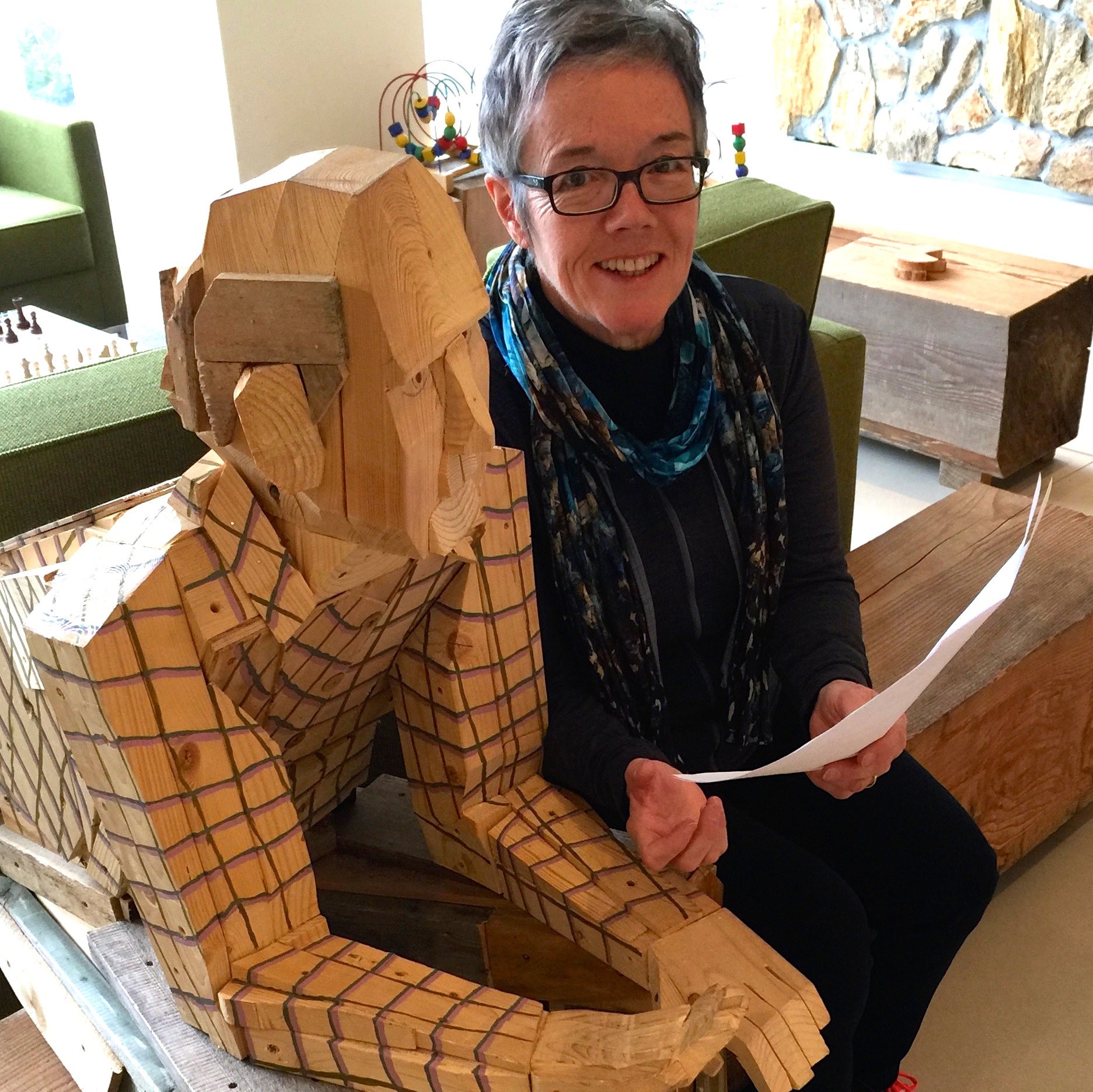My heartfelt thanks goes to Canadian author Judy McFarlane for writing this inaugural guest post on belonging:
Almost every day for the past three years I’ve walked with my small white dog through the park near my home. Jasper and I know the dogs that are beyond excitement to see us, the dogs that refuse to acknowledge our existence. We know the owners who like to talk and the ones who avoid eye contact. We know the man who sits on the same bench reading the paper, the older woman with two walking poles who tells me about the eagle she spotted earlier. It’s the small gestures – a nod, a smile, a brief conversation – that make me feel I belong.
I think about how little it takes to create that feeling as I pass the homeless man who lives in my park. Sometimes he’s asleep, huddled up under the overhang of the parks building. Other times he’s standing, still and silent as the trees around him, staring at the ground. He doesn’t look up, doesn’t give any sign that he’s aware that someone is passing by. He seems so withdrawn, so impossible to reach. And, I have to admit, frightening. How would he react if I stepped into his circle of loneliness and isolation? Would he lash out or back shyly away? Or is he just not there? I don’t stop to find out.
Until one sunny, blue sky day. There he was, closer to the path than he’d been before. Standing still as usual, staring at the ground. For some reason, I said good morning as I passed him. He looked at me and for the first time, I saw his eyes, blue as the sky. A half-smile flickered over his face before he looked down again. I walked on, stunned. For the briefest of moments, we’d seen each other.
What made me speak that day? Partly it was being close enough to feel his enormous loneliness. And partly, I think, it was something I’d come to understand by getting to know a young woman named Grace.
A friend asked me if I’d help Grace, who has Down syndrome, start to write. That simple request brought up fears I didn’t realize I held – that someone like Grace would become frustrated, agitated, angry even, as we struggled to talk about writing. But I did go to meet Grace. I recognized in her simple words, I want to write, my own dream. And by getting to know Grace and glimpsing the world through her eyes, I discovered that we were much more alike than we were different. Like me, she’s an avid reader. Like me, she likes to sort out how she feels about something by writing about it. I was astonished to discover that we could go to the same place in our imaginations at the same time.
And I learned that something like Down syndrome, a visible condition, often makes the person invisible. All we see is the disability, the homelessness, or whatever the difference is that makes us feel uneasy and avert our eyes. So in a way, Grace has taught me to see. That if I don’t look away, the person will come into focus. Just like the homeless man did that day in my park.
Judy McFarlane is a writer in Vancouver, British Columbia, Canada. She writes non-fiction and fiction, and has received awards in both genres. Her work has appeared in anthologies, Canadian literary journals and newspapers, and has been broadcast on CBC radio.
Judy’s memoir, Writing with Grace, describing how she was transformed by her experience helping a young woman with Down syndrome write a book, was published by Douglas & McIntyre (May 2014). You can buy Writing with Grace through The Book Depository and Amazon.com.
Judy will be my next feature in Interview & Epiphanies.

